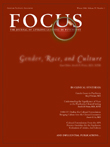Relationship of Variability in Residual Symptoms With Recurrence of Major Depressive Disorder During Maintenance Treatment
Abstract
Objective: To investigate how residual symptoms from an index episode of major depressive disorder may be associated with recurrence, the authors conducted a trial involving four maintenance treatment approaches and examined 1) whether the level and variability of residual symptoms differed among the maintenance treatment conditions and 2) whether greater symptom variability is associated with a higher likelihood of recurrence and more rapid recurrence. Method: Patients enrolled in a maintenance treatment study (N=114) were randomly assigned to one of four maintenance treatment conditions: imipramine plus interpersonal psychotherapy, imipramine alone, interpersonal psychotherapy alone, or no active treatment. Residual symptoms were characterized both as continuous variables (mean values and coefficients of variation for Hamilton Depression Rating Scale and Global Assessment Scale [GAS] scores) and as a categorical variable, the percentage of maintenance evaluations with a Hamilton depression scale score ≥8 (e.g., with a symptom peak). Results: Analysis of variance revealed no differences among the four treatment conditions in patients’ levels of residual symptoms or symptom variability assessed as a continuous variable, but patients in the combined treatment group had fewer symptom peaks, compared to those in the placebo and interpersonal psychotherapy groups. Cox proportional hazards modeling showed that higher coefficients of variation for both the Hamilton depression scale and the GAS scores and a greater percentage of evaluations with symptom peaks were associated with shorter survival times. Conclusions: A higher level of symptom variability during maintenance treatment is associated with higher risk for recurrence of depression and may provide a specific target for maintenance treatments.



